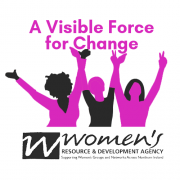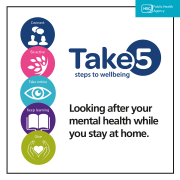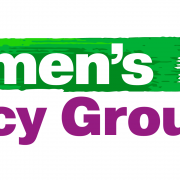The ongoing COVID-19 pandemic has created an unprecedented challenge across society worldwide, and Northern Ireland is no different. The current crisis affects men and women differently, and in many cases deepens the inequalities women experience on an everyday basis. While medical evidence shows that men who are diagnosed with the virus are more likely to die from it, the crisis goes beyond this. It has put in sharp focus the value and importance of care work, paid and unpaid, and highlighted the essential nature of often precarious and almost always low paid retail work. Women undertake the majority of this work, and women will bear a particular brunt of this crisis, economically, socially and in terms of health.
Most urgently, we are facing the reality of an increase in domestic abuse, worsened by the heightened tensions of a quarantine or lockdown situation. We know this is a problem because domestic abuse rates and calls to support lines rocketed in China when the pandemic hit there, and already support services here in Northern Ireland are raising the alarm. This issue disproportionately impacts women and is worsened by the poor state of our shelters and services after a decade of severe cuts which lead to the reality that some people had to be turned away even before this pandemic; we need a serious commitment to reinvestment in these areas in the long term as well as support in the short term. In Britain last weekend 9 people were murdered in domestic situations, all were women and children. As the quarantine situation stretches on, this is likely to increase. In addition to this, sexual violence is often part of the arsenal of methods employed by domestic abusers, and it is likely to increase also, and services in NI are only beginning to recover after over a decade without a Rape Crisis Service at all. While these kinds of services must be well-funded in every circumstance and given their rightful place as a vital part of the national infrastructure, they are especially urgent now.
At this point we must make it clear that some women are even more at risk than others, because they face discrimination on multiple grounds. These include women with disabilities or long-term illnesses, who are especially vulnerable to the virus, as well as women already marginalised or minoritised and therefore with less access to state aid, for instance women in detention, migrant women with insecure immigration status, BaME women and LBT women. It also includes sex workers whose work has become impossible in the current environment but who do not have recourse to financial supports put in place to freelance workers. Some of these marginalised women are also afraid of seeking support or even medical attention because, for example, they fear deportation. As yet there are no guarantees of their safety or leave to remain should they do so, and this will put people at risk. Rural women will be impacted by the curtailment in public transport, as will those who do not drive – particularly if they are facing long delays before they can order food shopping to their house and access to a supermarket is difficult.

In terms of women in work, women constitute over 70% of health and social care staff on the front lines of this pandemic, with a significant proportion of those from BAME backgrounds. For many this involves a double burden, as women also shoulder the lion’s share of unpaid care work. This also puts women at increased risk of infection through their work – particularly if there is insufficient PPE provided – as well as at risk of spreading infection to vulnerable family members. Many women will be expected to take on additional care commitments as the epidemic in Northern Ireland escalates, potentially putting themselves and those they care for at risk. It is essential that home carers, as well as health and social care staff, have access to appropriate advice and where required, and to adequate protective equipment, to protect themselves and society at large.
There are significant issues around childcare, as many women workers relied on schools or creches, which are now closed, or the children’s grandparents, most of whom are unable to care for small children because of the dangers of transmission. Finding alternatives is sometimes impossible and always a financial strain. In addition, while some schools remain open for the children of key workers, the primarily female teaching staff have found themselves navigating the challenge of managing a school with social distancing requirements and finding childcare for their own children.
Women are over-represented in part-time, temporary and precarious work, and many of these roles have seen massive redundancies as bars, hotels, pubs and restaurants have closed. These workers will have to wait for a number of weeks for their Universal Credit claim to be processed – and as we well know Universal Credit tends to leave many families in poverty or unable to pay their bills. Women are twice as likely to be dependent on social security as are men, and this number may well increase over this crisis period. The Government have, as yet, made no promises to speed up the process to receive Universal Credit nor offered any assistance to renters to help pay their bills in the intervening weeks. A third of all food bank users are single mothers, and demand for food banks has already increased, which will add strain to an already stretched service.

Health, of course, includes more than protection from or treatment for COVID-19. Women must also be able to access sexual and reproductive health services, including contraception and emergency contraception, as well as the means to access safe abortion care. At present, travel to Britain for such care is impossible, and as the Government position has moved to enforce strict limits on travel, requiring pregnant people to meet in person with multiple medical professionals will further endanger all involved. Minister Swann should allow a move towards telemedicine as swiftly as possible.
These are the bigger issues, but there are lots of smaller ones. Some supermarkets have allowed specific shopping hours for more vulnerable people, but in doing so have failed to account for the shortages in items like nappies and formula and the pressure this puts on parents at his time – particularly those without access to transport and those who are single parents and find that certain supermarkets ban children entirely, making shopping impossible. Shopping online is arguably harder, with some not offering delivery slots within the next month.
We urge action on all of these issues and echo the calls for action from the Women’s Policy Group.


 https://www.psni.police.uk/advice_information/COVID-19/
https://www.psni.police.uk/advice_information/COVID-19/ 







 https://www.psni.police.uk/advice_information/COVID-19/
https://www.psni.police.uk/advice_information/COVID-19/